Today morning, I asked my son over the phone, whether he has read the WhatsApp message regarding Bill Gates 5 summer books and other things to do at home.
He simply said no.
I asked him, why?
He said, so much information is coming, when to read and how?
He seemed overloaded!
This is information overload!!

Nowadays, we are bombarded with so much data that we’re on information overload.
If you pay attention, you will find that so many social media posts, newspapers, TV, Radios, countless blogs, reportedly more than 800000 podcasts and whatnot, all of us are exposed to millions of millions of information and right from gurus to political pundits telling us how to run our life.
Literally, the 21st century brought about an explosion of information.
The internet led to a rapid increase in the production of new information,
And smart Phone?
The smartphone made that new information very accessible and transmissible.
As you know, every day, new information is available at our fingertips via various media channels: e-mail, social media, instant messaging apps, television, radio, etc.

Because there is so much time to consume new information, this abundance of data puts increasing pressure on the information user.
Simply put, information overload is when our ability to process information has passed its limit, and further attempts to process information or make accurate decisions from the surplus of information leads to information overload.
The term, information overload, was first used in Bertram Gross’ 1964 book, The Managing of Organizations and it was further popularized by Alvin Toffler in his bestselling 1970 book ” The Future Shock“.


One of the first social scientists to notice the negative effects of information overload was the sociologist Georg Simmel (1858–1918), who hypothesized that the overload of sensations in the modern urban world caused city dwellers to become jaded and interfered with their ability to react to new situations.
The social psychologist Stanley Milgram (1933–1984) later used the concept of information overload to explain bystander behavior.
Probably, you have observed that the problem is exacerbated by the fact that relevant information is far outnumbered by irrelevant and unimportant information, constantly piling up on various media channels.
You can find it a point why noted journalist Ravish Kumar says, stop watching television!
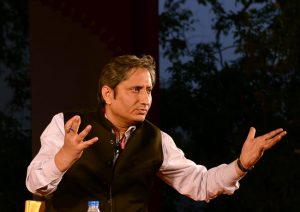
In our news channel, you will find the debates on most channels are intolerably chaotic shouting matches. Coverage of stories by media outlets too follows a pre-determined script rather than an honest investigation.
Once capacity is surpassed, additional information becomes noise and results in a decrease in information processing and decision quality…Having too much information is the same as not having enough
Now, there is a new name for it, that is IFS.
IFS ????
Yes, Its….Information Fatigue Syndrome.
Mind it, the negative effects of information fatigue can impact us throughout the course of our day.
Interested to check whether already a victim of IFS?
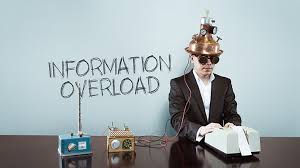
As mentioned in workplace psychology, Just closely look into the following points to check yourself – whether you are a victim of IFS or not.
- Poor concentration due to the overloading of short-term memory
- Polyphasic behavior or multi-tasking often resulting in diminished rather than increased productivity
- Hurry sickness, which is the belief that one must constantly rush to keep pace with time
- Pervasive hostility resulting in a chronic state of irritability near anger or even rage
- Habituation or over-stimulation which causes the brain to shut down and enter a trance-like state
- “Plugged in” compulsion is the strong need to check email, voice mail and the Internet in order to stay “in touch”
- Traditional stress including lowered immune response, endocrine imbalance, depression and the experience of “burn out”
If some of the above symptoms are there in you, you are definitely a victim of IFS!!

But as you may be knowing the great quote: A problem well stated is a problem half solved- John Dewey. There is of course solution to deal with this Information overload or Information Fatigue Syndrome.
It’s definitely possible to combat information fatigue, but it will take time.
Don’t forget that human beings are habitual creatures. According to Charles Duhigg, author of the ” The Power of Habit“, it takes 66 days on average to build a new habit.
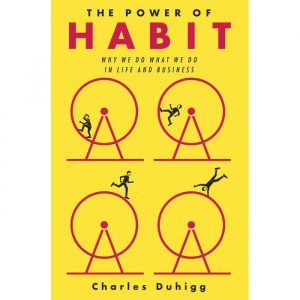
The good news is, in his LILA (Learning Innovations Laboratory) briefing of Harvard Graduate School of Education about “ Information Overload: Causes, Symptoms, and Solutions”, Joseph Ruff beautifully explained how one can deal with Information overload.
Joseph Ruff offers a list of strategies to manage information overload.

He divides the solutions into proactive and reactive strategies.
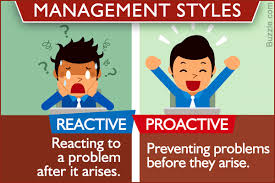
Proactive strategies are attempts at preventing information overload.
Reactive strategies, on the other hand, are implemented after information overload has occurred.
Below is Ruff’s list. To see a more detailed list click on the link to his PDF
Proactive: 
- Devise a pulse-taking system to form a constantly changing up-to-date mental model of the organization and key stakeholders
- Create a personal system for storing and retrieving information (i.e. notebook, planner, system for filing and organizing email)
- Do not overwhelm yourself with a waste-not want-not mentality; throw it away or delete it
- Time management training
- Business writing training
- Software and technology training
- Information literacy training
- Traditional and digital communication skills
- Thinking and decision making skills
- Creativity, innovation and risk-taking
- Computer literacy
- Subject matter literacy
- Learning how to learn
- Electronic resources
- Chunking and mnemonics training
- Perception’s role in information overload training
Reactive: 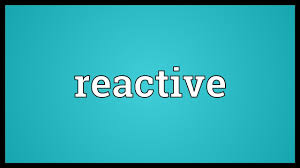
- Filtering – focusing attention only on the most useful and essential information while purposefully ignoring other sources
- Multitasking – performing two or more job functions at the same time
- Queuing – performing initial steps to tasks that will be completed at a later time
- Escaping – eliminating disturbances by psychologically or physically limiting disruptions from the outside world (i.e. not answering the phone, closing door)
- Prioritizing – determining and approaching the most important tasks first
- Delegating – determining which tasks can be given to other workers
- Refusing – determining which tasks can be left undone
- Limiting – not being seduced by thinking that more information is better
- Satisficing – seeking “good enough” solutions; not perfection
- Altering – changing the perception of a task by performing it in a different way or place (i.e. view documents on paper instead of a computer screen; move to a lounge or coffee shop)
- Shifting – changing the perception of the situation by accepting it as just part of the job
For your kind information, it may be noted that information fatigue is a major cause of concern for general information users — and especially knowledge workers.
Although this explosion of information is a very recent phenomenon, and human beings are still trying to adapt in order to deal with all this data effectively, but one thing is sure, too much information undermines our performance, making it harder to think clearly or act sensibly, which can have drastic consequences.
As explained above, to combat information fatigue, we can either learn to filter, escape, or prioritize or we can train ourselves in the skills of information literacy.
Luckily, artificial intelligence is coming to the rescue, assisting our brains in finding the right information more quickly and efficiently.
AI?

Yes, By harnessing artificial intelligence (AI), they have already made breakthroughs in man-machine interactions through Watson, Siri, and more. But, for AI to have a truly transformational impact, artificial neural networks are now on the project to get further reinforced by human native intelligence and once it is done, AI can take charge to assist our brain to find the right information.
-End-
For other interesting blog, click below:
Why books so important to change your life
Why speed reading is important?
How to deal with emotions in a healthy way?
How to calm the Amygdala Hijack naturally?
Boost your immunity against corona virus-Covid19 by using Black seed/Kalonji Oil
Why Mental health is far more important than physical health?
How Technology is shaping the future of education?


That’s true we are exposed with many information which made us tired and confused. Really an excellent engaging blog. Thanks for sharing your knowledge with us.
Thank you so much for your nicely expressed feedback. Stay blessed.
Thank you Mr. Mohit for your feedback. Behind the scene, it,s you to make me feel encouraged!
Sir you are absolutely correct about information overloaded which has now become a major problem for us. Can u suggest me or anybody to sort out this problem.
Thank you for your well-defined feedback which indicates that you have gone through the materials of the blog in depth.
For more suggestion, you can visit my website: http://alammir.com
Thank you so much
I am very happy after reading your every blog. Why?
First, all the blogs are relevant to the current scenario and second it always had profound impact on my thinking.
You come up with some fresh perspective and end up giving me food for thought. I totally agree that too much information is not going to make us a wise man but a dustbin with too much crap. The need is not to read and intake everything but to understand the concept and sense behind it.
We want to be educated and develop our rational thinking and logic to make our and others life a better one. Instead we are running for information carrier for which we already have invented HARD DRIVE and Cloud.
Keep writing sir!
Because your words are changing our lives.
Thank you so much Mr. Vimanyu.It’s really a feel-good moment for me that for your that punch line ” Because your words are changing our lives”!
It really encouraged me to come up with more write up!
Stay blessed and safe.
Thank you so much for your well explained long feedback which indicates you gone into the depth of the matter and liked it and got inspired.
Very informative and helpful post
Thank you for the genuine feedback
[…] How to deal with Information overload ? […]
[…] How to deal with Information overload ? […]
[…] in today’s, so stressful life with Information overload, everyone wants to be […]
[…] Today’s fast-paced high-tech information age, we are overloaded with information. Some times we believe some information. sometimes we delete it from our mind as […]
[…] How to deal with Information overload ? […]
[…] this era of information overload with fast track life and especially in this pandemic, we must ask ourselves […]
[…] book reading is also termed as best form of meditation in this information overload era, just imagine, while you absorb yourself in writing your first book, do you think you can ever […]
[…] As you may be aware, content reigns supreme in today’s fast-paced digital environment. […]
[…] Yes, you’ve probably heard this before, especially now that you’re living in the fast-paced digital era of information overload. […]
[…] luck has supplanted faith in hard effort and religion in today’s fast-paced digital age with information overload and glitzy […]
[…] information we receive; instead, we’re trying to recognise and justify whatever it is we […]